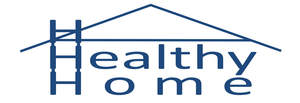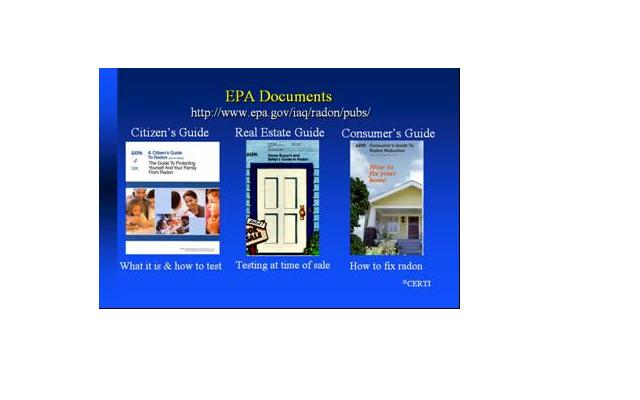Radon Testing Denver303-989-6809Radon Testing is Unavailable. Continuous Monitor Testing in south Denver metro Not available Experienced - we have performed over 7000 radon tests in the Denver metro area. Member of the NEHA Radon Information Speaker Bureau. Friendly - we take the time to explain radon gas and the significance of the levels measured to each client. Fast response - 48 hour test, no waiting for lab results.Results can be printed out at the house, and/or faxed/emailed the same day. Independent - no conflict of interest. We do not perform radon mitigation services. Bob Boyd is a Radon Speaker Bureau Member, and is available for radon presentations. |
Most experienced radon testing company in the Denver area. No "conflict of interest" because we only test for radon gas. We're not a radon mitigation company.
|

CONTINUOUS MONITOR TESTING
The monitor takes hourly readings as well as keeping an average of all the hours. The test last for a minimum of 48 hours. Results can be downloaded and printed on site, and/or emailed. The report includes a graph of the hourly readings.
Closed House Conditions must be maintained throughout the test. All windows and exterior doors must be kept closed except for brief opening for normal entry and exit. No evaporative (swamp) coolers running during the test. OK to run central Air Conditioner.
What Is Radon?
Radon is a naturally occurring radioactive gas that can increase your risk of getting lung cancer. The U.S. Surgeon General issued a health advisory in 2005 that "Indoor radon is the second-leading cause of lung cancer in the United States..." Radon is produced by the radioactive decay of Uranium and Radium that is present in the soil. When the windows are closed, houses build negative pressure. Combustion appliances, bathroom fans and cloths dryers all push air out of the house. The negative pressure draws the radon gas out of the soil and into the house. The indoor amount can build to more than 10 times the outdoor amount. If indoor radon levels are 4.0 pCi/L or above the EPA recommends mitigation. We commonly find radon levels in houses in the Denver area to be between 2 pCi/L and 20 pCi/L.
Radon is a naturally occurring radioactive gas that can increase your risk of getting lung cancer. The U.S. Surgeon General issued a health advisory in 2005 that "Indoor radon is the second-leading cause of lung cancer in the United States..." Radon is produced by the radioactive decay of Uranium and Radium that is present in the soil. When the windows are closed, houses build negative pressure. Combustion appliances, bathroom fans and cloths dryers all push air out of the house. The negative pressure draws the radon gas out of the soil and into the house. The indoor amount can build to more than 10 times the outdoor amount. If indoor radon levels are 4.0 pCi/L or above the EPA recommends mitigation. We commonly find radon levels in houses in the Denver area to be between 2 pCi/L and 20 pCi/L.
LINKS TO RADON SITES
US EPA, Indoor Air Quality,radon page provides information and links to supporting documentation concerning radon gas exposure, and it's health hazards. Recent studies have been completed in the United States and Europe. The studies have driven the EPA's new risk assessments for radon. More information and links to these studies are available at the link below.
US EPA, Indoor Air Quality,radon page provides information and links to supporting documentation concerning radon gas exposure, and it's health hazards. Recent studies have been completed in the United States and Europe. The studies have driven the EPA's new risk assessments for radon. More information and links to these studies are available at the link below.
|
US EPA's radon info
The EPA has several useful publications concerning radon. They are available online at the links below. The "EPA Citizen's Guide To Radon" can be ordered for free by using its link. EPACitizen's Guide to Radon EPAHome Buyer's & Seller's Guide to Radon EPAConsumer's Guide to Radon Reduction |
|
AARST: This agency administers the "National Radon Proficiency Program," (NRPP). AARST certifies radon testing and mitigation professionals for the National Radon Proficiency Program.
AARST radon page - http://aarst-nrpp.com The AARST-NRPP keeps a list of certified measurement and mitigation professionals. The links below will take you to the Colorado NEHA-NRPP certified professionals. You will find our companies certified testing professionals in the Lakewood section. NEHA/AARST certified Colorado measurement providers-https://www.colorado.gov/pacific/sites/default/files/HM_radon-certified-measurement-providers.pdf NEHA/AARST certified Colorado radon mitigators -https://www.colorado.gov/pacific/sites/default/files/HM_radon-certified-mitigators.pdf The Colorado Department of Health and Environment page has useful info about radon in our state. https://www.colorado.gov/pacific/cdphe/understanding-radon |


